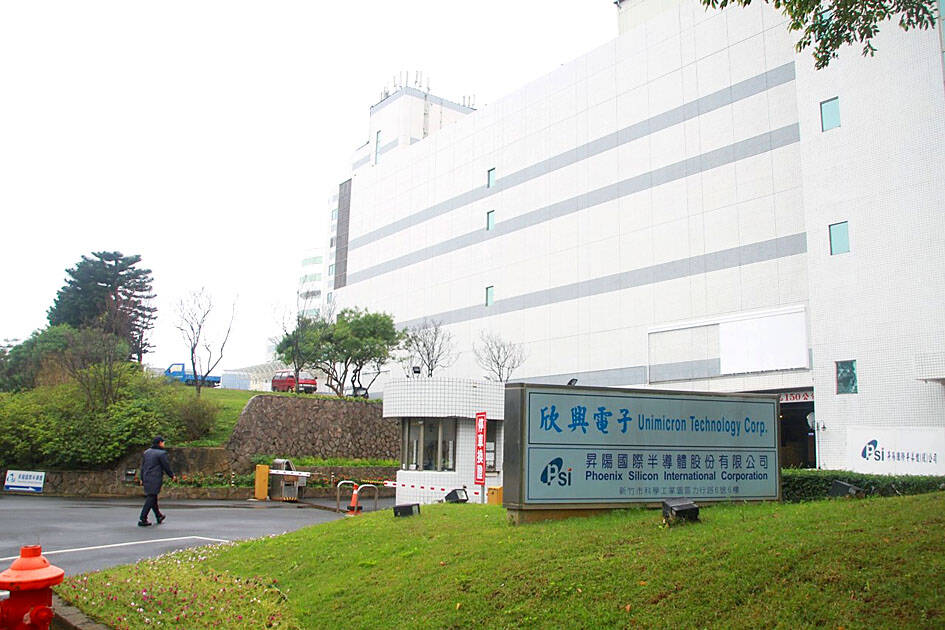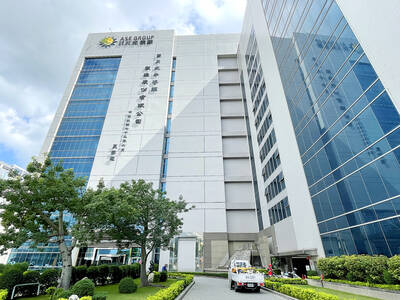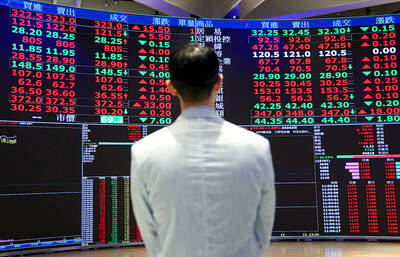Phoenix Silicon International Corp (昇陽半導體), the world’s largest supplier of reclaimed wafers, yesterday said it is investing NT$1.85 billion (US$60.59 million) to build a new plant in Taichung to accelerate capacity expansions, and to meet market demand.
The new plant, dubbed FAB3B, is expected to enter volume production in 2028, the company said in a statement.
It would have installed capacity of 600,000 12-inch wafers per month, Phoenix said.

Photo: Ho Tsung-han, Taipei Times
The firm also plans to double capacity at a separate Taichung plant, FAB3A, to 600,000 12-inch wafers per month next year, compared with 300,000 wafers currently, it said.
“The new capacity expansion plans would bolster Phoenix’s leading position in the global reclaimed wafer market and will also deepen its partnerships with major global customers,” the company said. “That will also give the company greater capacity, scale and flexibility to swiftly respond to global customers’ demand.”
With its capacity expansion efforts, Phoenix this year overtook Japan’s RS Technologies Co as the world’s biggest supplier of reclaimed wafers.
Phoenix in June told investors that a chipmaker uses about 2.7 reclaimed wafers for testing and equipment checking to produce one 2-nanometer wafer, compared with two reclaimed wafers used in the production of one 3-nanometer wafer, meaning that customer demand is greater than the company expected, hence the need for capacity expansion.
The company has also tapped into the advanced packaging market through providing wafer thinning services, it said.
Taiwan Semiconductor Manufacturing Co’s (台積電) 2-nanometer process technology is to enter volume production by the end of this year, leading its rivals in offering 2-nanometer chips.
Overall, the firm is benefiting from growing demand for advanced chips and high-bandwidth memory chips used in artificial intelligence and high-performance computing applications, Phoenix said.
About 70 to 75 percent of its reclaimed wafers are used for advanced chips, or those of 5-nanometers or smaller, it said.
Phoenix reported a 31.53 percent growth in revenue to NT$3.29 billion in the first nine months of this year, compared with NT$2.5 billion a year earlier.

EXPANSION: The investment came as ASE in July told investors it would accelerate capacity growth to mitigate supply issues, and would boost spending by 16 percent ASE Technology Holding Co (ASE, 日月光投控), the world’s biggest chip assembly and testing service provider, yesterday said it is investing NT$17.6 billion (US$578.6 million) to build a new advanced chip packaging facility in Kaohsiung to cope with fast-growing demand from artificial intelligence (AI), high-performance-computing (HPC) and automotive applications. The new fab, called K18B, is to commence operation in the first quarter of 2028, offering chip-on-wafer-on-substrate (CoWoS) chip packaging and final testing services, ASE said in a statement. The fab is to create 2,000 new jobs upon its completion, ASE said. A wide spectrum of system-level chip packaging technologies would be available at

HEAVYWEIGHT: The TAIEX ended up 382.67 points, with about 280 of those points contributed by TSMC shares alone, which rose 2.56 percent to close at NT$1,400 Shares in Taiwan broke records at the end of yesterday’s session after contract chipmaker Taiwan Semiconductor Manufacturing Co (TSMC, 台積電) hit a fresh closing-high amid enthusiasm toward artificial intelligence (AI) development, dealers said. The TAIEX ended up 382.67 points, or 1.45 percent, at the day’s high of 26,761.06. Turnover totaled NT$463.09 billion (US$15.22 billion). “The local main board has repeatedly hit new closing highs in the past few sessions as investors continued to embrace high hopes about AI applications, taking cues from a strong showing in shares of US-based AI chip designer Nvidia Corp,” Hua Nan Securities Co (華南永昌證券) analyst Kevin Su

Taiwan’s foreign exchange reserves hit a record high at the end of last month, surpassing the US$600 billion mark for the first time, the central bank said yesterday. Last month, the country’s foreign exchange reserves rose US$5.51 billion from a month earlier to reach US$602.94 billion due to an increase in returns from the central bank’s portfolio management, the movement of other foreign currencies in the portfolio against the US dollar and the bank’s efforts to smooth the volatility of the New Taiwan dollar. Department of Foreign Exchange Director-General Eugene Tsai (蔡炯民)said a rate cut cycle launched by the US Federal Reserve

Nvidia Corp’s major server production partner Hon Hai Precision Industry Co (鴻海精密) reported 10.99 percent year-on-year growth in quarterly sales, signaling healthy demand for artificial intelligence (AI) infrastructure. Revenue totaled NT$2.06 trillion (US$67.72 billion) in the last quarter, in line with analysts’ projections, a company statement said. On a quarterly basis, revenue was up 14.47 percent. Hon Hai’s businesses cover four primary product segments: cloud and networking, smart consumer electronics, computing, and components and other products. Last quarter, “cloud and networking products delivered strong growth, components and other products demonstrated significant growth, while smart consumer electronics and computing products slightly declined,” compared with the